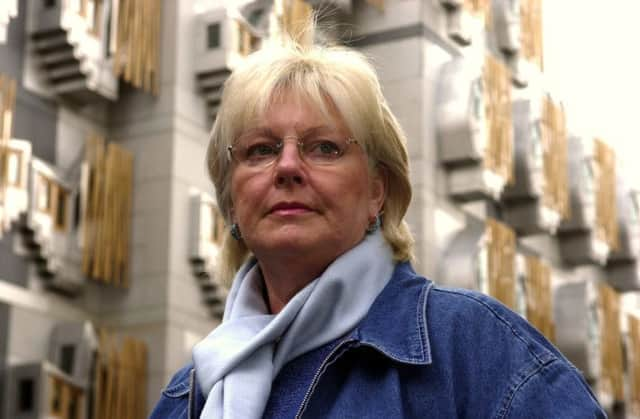GP tells MSPs he signed up for assisted suicide


Dr David Stevenson told MSPs he would take such a course if his life became a “daily hell”.
He argued assisted suicide should be “permissible” under a law first proposed by the late MSP Margo MacDonald.
Advertisement
Hide AdAdvertisement
Hide AdIn his submission to Holyrood’s health committee, he said: “To this end my wife and I, with the assistance of our lawyer, have carefully drafted and signed affidavits expressing our wishes in this regard in the belief that central to such a bill would be a requirement that written, signed and witnessed statements made when of sound mind should be a prerequisite to prevent such a law being abused.
“We have also completed the draft ‘preliminary declaration of willingness to consider assisted suicide’ form referred to in the bill.”
He said his decision was reached after dealing with patients, as well as his own mother and mother-in-law, who both have dementia.
“My parents had both expressed the wish verbally when they were well that should they find themselves in such circumstances we should ‘push them over a cliff’,” the GP added.
More than 500 submissions have been received by the health committee examining the change in law.
Medical and religious leaders oppose the changes, but humanist and right-to-die groups support it. Most doctors who lodged submissions were opposed.
In her submission, Dr Margaret E Stewart, who said she was a former consultant geriatrician, now being treated for Parkinson’s, stated: “None of the hundreds of patients with this condition that I cared for over the years ever requested assisted suicide – or indeed even mentioned the possibility to me.
“In addition, none of the thousands of other elderly patients suffering other chronic diseases (some terminal) that I cared for ever requested this either.” She added: “The bill is deeply flawed. I hope the Scottish Parliament will decisively vote against it.”
Similar right-to-die plans were rejected by MSPs in 2010.
Advertisement
Hide AdAdvertisement
Hide AdMSPs will begin taking evidence on the controversial legislation in November, with a report expected in the new year.
A ComRes poll of 2,000 adults across the UK earlier this month found 70 per cent support allowing assisted dying under proposed consent rules, with 12 per cent disagreeing and 18 per cent saying they did not know.
Some 47 per cent said they believed legalising assisted suicide would lead to some vulnerable people opting to end their lives to avoid becoming a burden.